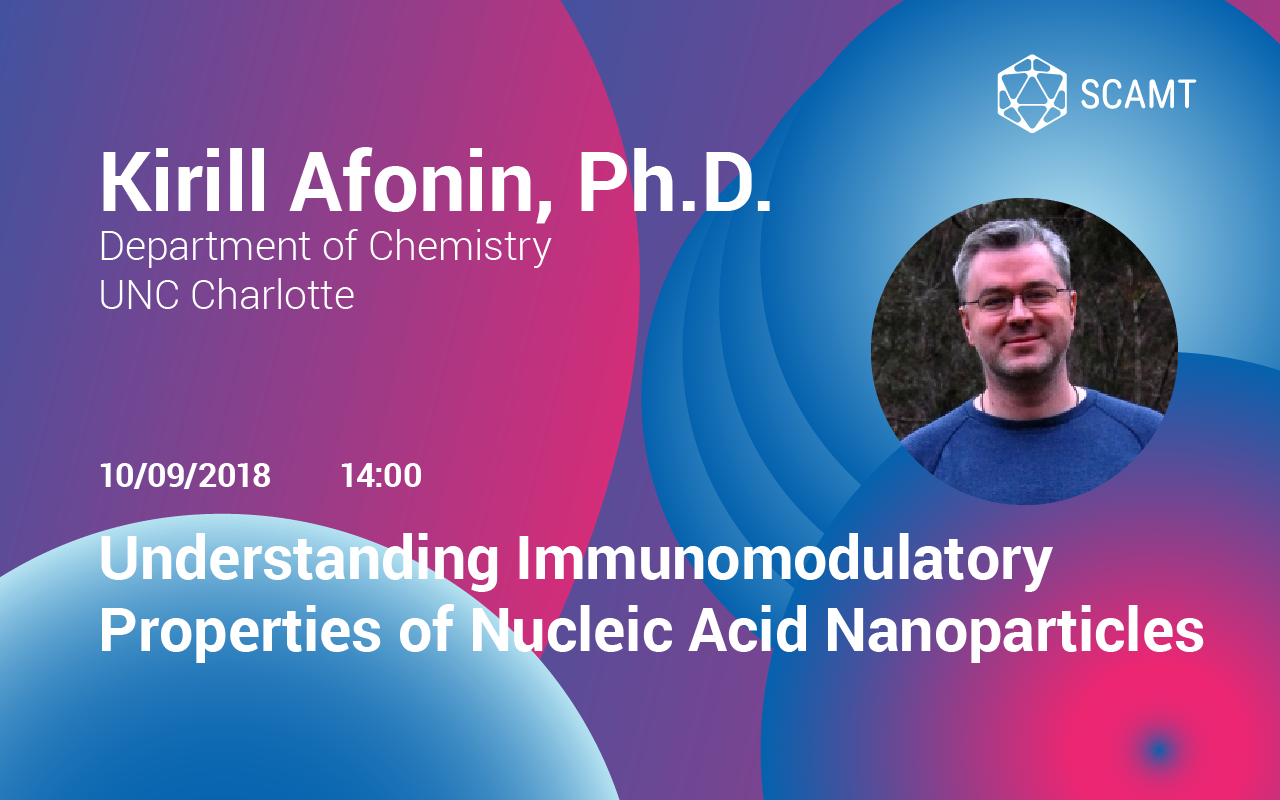Dear colleagues — next week on the 10th of September Assistant Professor at the Department of Chemistry UNC Charlotte - Kirill A. Afonin will visit SCAMT and give the lecture "Understanding Immunomodulatory Properties of Nucleic Acid Nanoparticles"
10/09/2018 2:00 pm
Please, read the abstract below:
Therapeutic nucleic acids have evolved as a promising platform for the detection and treatment of a wide range of diseases. In the past years, however, there have been several announcements that U.S. biotech companies have discontinued clinical development of therapeutic nucleic acids formulated using lipid-based carriers citing severe “cytokine storm” inflammatory reactions and limited efficacy among reasons for the discontinuation of such formulations. To address these barriers, more sophisticated formulations that employ rationally designed RNA molecules have been designed. The ability of RNA to assemble into discrete and uniform shapes make them a viable option for a number of biomedical applications and to become one of the next milestones in personalized medicines along with small molecule and protein-based pharmaceuticals. It is becoming apparent that interactions between RNA nanoassemblies and the immune system must be defined to permit the successful translation of this technology to the clinic. Therefore, to address fundamental questions regarding the immune recognition of these novel materials, we have designed the following study in which features such as size, shape, composition, and physicochemical properties of RNA and DNA nanoparticles were related to their therapeutic activity in human cancer cells and activation of immune responses in human immune cells. We designed, assembled and characterized a series of RNA, DNA, and RNA/DNA hybrid nanoparticles and further surveyed the link between their size, composition, physical and chemical properties to the pro-inflammatory responses. The biomarkers of pro-inflammatory response were cytokines and type I interferons. This work is instrumental in bridging the rapidly narrowing gap between basic research on nucleic acid nanoparticles and advanced pharmaceuticals containing these novel materials.
